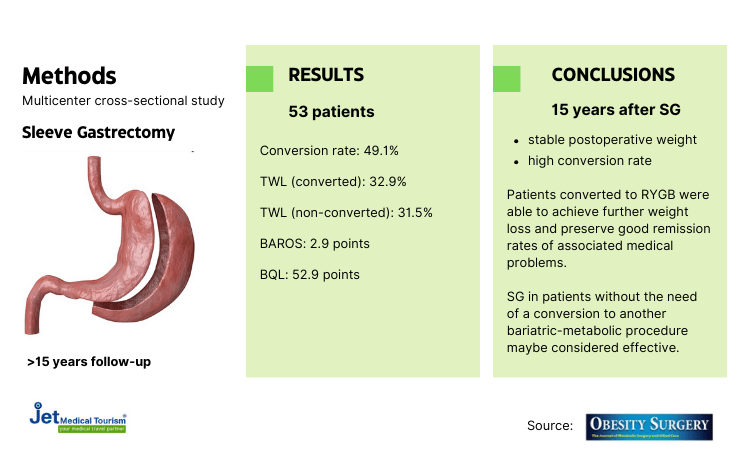Is Weight Loss Surgery Permanent?
For those struggling with obesity, weight loss surgery often presents itself as a beacon of hope, promising a fresh start toward better health. But is weight loss surgery permanent, or is there more to the story? While these procedures can offer dramatic initial results and lead to significant weight loss, achieving lasting weight management requires commitment and effort beyond the surgery itself. Long-term success isn’t guaranteed simply by the surgery alone; it involves a blend of lifestyle changes, dietary adjustments, and ongoing support.
In this blog, we’ll take a closer look at the factors that impact long-term outcomes, including the types of surgery available, the role of daily habits, and some of the common challenges that patients face. We’ll also share real-world examples to give you a clearer picture of what to expect on this journey toward a healthier life.
Immediate Effects of Weight Loss Surgery
After weight loss surgery, patients typically experience rapid weight loss, especially during the first six months to a year. This is due to the drastically reduced capacity for food intake and the hormonal changes that often accompany these procedures.
In addition to shedding pounds, many patients see improvements in obesity-related conditions like Type 2 diabetes, high blood pressure, and sleep apnea. However, these initial effects, while dramatic, don’t necessarily reflect the long-term sustainability of weight loss.
Factors Influencing Long-Term Success
While bariatric surgery can be a powerful tool, it is not a guaranteed solution. Several factors can influence long-term weight loss:
Adherence to Post-Surgery Guidelines
Following a strict diet, exercising regularly, and making lifestyle changes are crucial for maintaining weight loss.
- Dietary Restrictions: Many bariatric surgeries require a significant change in diet, often involving avoiding certain foods or limiting portion sizes.
- Regular Exercise: Physical activity is essential for weight management and overall health.
- Lifestyle Modifications: Smoking cessation, stress management, and adequate sleep are important factors to consider.
Psychological Factors
Emotional eating, body image issues, and stress can impact weight management.
- Emotional Eating: Understanding and addressing emotional triggers can be crucial for preventing weight gain.
- Body Image Issues: Positive body image can help maintain healthy eating habits and exercise routines.
- Stress Management: Techniques like meditation, yoga, or deep breathing can help manage stress and prevent emotional eating.
READ: Bariatric Surgery Psychological Evaluation: An Ultimate Guide
Medical Conditions
Hormonal imbalances and certain medications can affect weight.
- Hormonal Imbalances: Conditions like hypothyroidism or polycystic ovary syndrome can impact weight.
- Medications: Some medications may have side effects that contribute to weight gain.
Surgical Complications
Issues like leaks, strictures, or other complications can hinder weight loss or require additional procedures.
Potential Weight Gain After Surgery
- Plateau Effect: Weight loss may slow down or stop over time, even when following post-surgery guidelines.
- Regaining Weight: In some cases, individuals may regain weight due to factors like stretching of the stomach or intestines.
- Contributing Factors: Stress, pregnancy, and aging can also influence weight.
Long-Term Effects and Sustainability
The long-term success of weight loss surgery varies from person to person. While many patients maintain their weight loss over the years, the results aren’t guaranteed to be permanent without effort. The sustainability of the surgery’s effects depends on several factors, including:
- Diet and Nutrition: Post-surgery, patients must follow strict dietary guidelines to prevent stretching the stomach or compromising the results.
- Exercise: Physical activity plays a crucial role in maintaining long-term weight loss.
- Behavioral Changes: Patients often need to make significant lifestyle changes to sustain their weight loss.
- Follow-up Care: Regular follow-ups with healthcare providers, including dietitians and counselors, help reinforce healthy habits and catch potential complications early.
Without these elements, some individuals may experience weight regain over time. Research shows that 15% to 30% of patients may regain some weight after surgery if they revert to old habits or lead a sedentary lifestyle.
Potential Challenges and Considerations
While weight loss surgery offers an effective tool for managing obesity, it is not a magic cure. Patients may face several challenges in the long term, such as:
- Weight Regain: Many patients often regain weight within 2 to 5 years post-surgery. Research indicates that this regain is frequently linked to factors such as increased caloric intake from heightened appetite after surgery, maladaptive eating habits, insufficient physical activity, and psychological stressors.
- Psychological Adjustments: Weight loss can bring unexpected emotional and psychological challenges. Body image issues, eating disorders, or feelings of regret are possible and should be addressed with professional support.
- Nutritional Deficiencies: Many forms of bariatric surgery alter digestion, leading to deficiencies in vitamins and minerals. Patients often require lifelong supplementation of key nutrients such as Vitamin B12, Iron, and Calcium to avoid serious health complications.
What Do Studies Say About Weight Loss Surgery Permanence?
Long-term research on bariatric surgery shows promising results for most patients. According to a study published in The New England Journal of Medicine, gastric bypass patients maintained about 60% of their weight loss a decade after surgery.

The Obesity Surgery found that patients who underwent bariatric surgery, including gastric sleeve, maintained substantial weight loss over a decade or more.
Renowned bariatric surgeons in Mexico like Dr. Edwin Guerrero experts stress that patient outcomes largely depend on how well they adhere to post-surgery guidelines. He emphasizes the importance of ongoing care and lifestyle changes.
Different bariatric procedures have varying success rates. For instance, gastric bypass tends to result in more sustained weight loss than gastric sleeve or adjustable gastric banding. However, each patient’s experience is unique, and it’s crucial to work closely with a healthcare team to ensure long-term success.
The debate: Is Weight Loss Surgery Permanent?
While weight loss surgery can offer a long-lasting solution to obesity, it isn’t a permanent fix on its own. The surgery provides the necessary tools, but patients must commit to lifestyle changes that will help sustain their results over time. This includes eating a balanced diet, staying physically active, and addressing any psychological or emotional factors that may contribute to overeating or unhealthy habits.
For those willing to embrace a new lifestyle, weight loss surgery can provide significant, long-term results. However, it’s important to manage expectations and understand that the surgery is part of a broader commitment to maintaining weight loss and health improvements over the long term.
Conclusion
Weight loss surgery offers a powerful option for those struggling with obesity, but the permanence of its results depends largely on the individual. With proper care, support, and lifestyle changes, many patients can enjoy a lasting transformation. However, without these elements, the risk of weight regain increases. If you’re considering weight loss surgery, be sure to discuss long-term plans with your healthcare provider to set yourself up for success.
Experience Lasting Weight Loss Success with Jet Medical Tourism
Jet Medical Tourism specializes in bariatric procedures that provide sustainable weight loss results. Our expert surgeons and state-of-the-art facilities ensure that you not only lose weight but maintain it for years to come.
Contact us now to start your weight loss journey!





